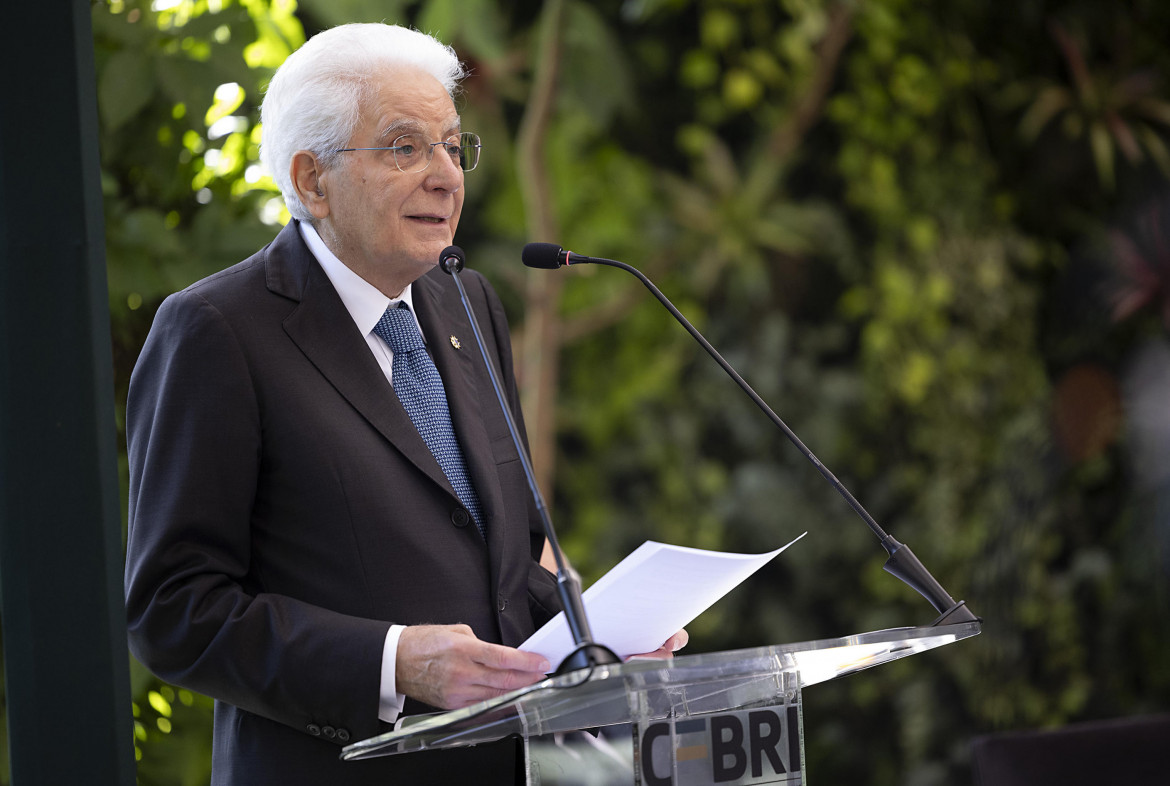Analysis
Mattarella in Rio: ‘Brazil is giving us a lesson in civilization’
Speaking at this venue on the other side of the world, in the country hosting the largest community of immigrants of Italian origin, Mattarella was able to outline a broad perspective, unconstrained by the often-stifling national debates.

While in Strasbourg Ursula von der Leyen was outlining the program of the new European Commission, in Rio de Janeiro Italian President Sergio Mattarella spoke at the Brazilian Center for International Relations, hinting at the outlines of a global policy agenda that is in conflict on many points with the intentions of the right. He outlined common-sense positions, obvious to anyone not caught up in ideological fanaticism in the face of the current global processes, but which seem almost eccentric in the context of the current public conversation.
The first was the issue of citizenship. The Italian president stressed the provincialism of the xenophobes in the face of major phenomena of population mobility: “Brazil is giving us a lesson in civilization,” he said, “not only with its reception and social nurturing of migrants, but also with its ability to make people who have come from so many parts of the world all Brazilians, authentically and proudly Brazilians, in full knowledge of the fact that their origins and ancestors lie in other countries.”
He recounted an exchange he had with a certain sovereignist leader he did not name: “Some time ago, a president of a European country told me: ‘We are defending the genuine authentic identity of Europeans.’ I said to him: ‘We’ve been subjected to immigration and invasions ever since the time of the Roman Empire, and the Roman Empire itself was the result of joining together different ethnic groups, different peoples and different contexts. This has happened through the ages, over many centuries, and we’re not at all unhappy with the end result.’”
Speaking at this venue on the other side of the world, in the country hosting the largest community of immigrants of Italian origin, Mattarella was able to outline a broad perspective, unconstrained by the often-stifling national debates.
“One must think in innovative terms. The world needs new energies,” he exhorted. ”Not that the old protagonists should be abandoned, but they are insufficient and inadequate for the global problems that the world is putting before us.” He was referring in particular to the forms of global governance, which must be renewed to avert the return of nation-states in their aggressive forms: “To avoid a return to 19th-century, 18th-century conceptions, as is happening in Europe, there is a need for new protagonists in international life,” Mattarella said.
“Let’s face it: in today's world, democracy isn’t in good shape,” he added, quoting Pope Bergoglio. And precisely because “we cannot resign ourselves to war,” he urged his audience to look at what was happening in Ukraine not from the point of view of a “regional crisis,” but a “global crisis […] because the seriousness of the attack on international coexistence committed by the Russian Federation, as well as the responsibilities of the aggressor, who is a permanent member of the Security Council, are all of global scope.”
The Italian president took his audience back to 1955, to the birth in Indonesia of the Non-Aligned Movement, which sought to escape the dominant role of the superpowers. He called on the democracies of the Global South, Brazil, India, South Africa and Indonesia, to once more take a “step forward” and align on “good causes” such as building peace and fighting world hunger and inequality – as well as climate change: “If we want to leave to future generations a planet where humanity can live and prosper in peace, we will have to make decisive progress, all together, towards an environmentally-friendly way of life,” Mattarella said.
On this point, he praised Lula: “We are following with great interest the initiatives that Brazil has returned to in the last two years with a view to combating climate change and protecting the many natural biomes in the country. Chief among them, I am thinking of the Amazon rainforest, an endless heritage of biodiversity, whose rate of deforestation has significantly decreased over the past year and a half, to the benefit of us all.”
Accordingly, he argued for “the urgency of a green transition that is concrete, pragmatic, sustainable and effective,” because “for too long, we have inadequately addressed the issue of environmental protection and climate change.”
Originally published at https://ilmanifesto.it/mattarella-e-il-modello-brasile-da-voi-lezione-di-cittadinanza on 2024-07-19
